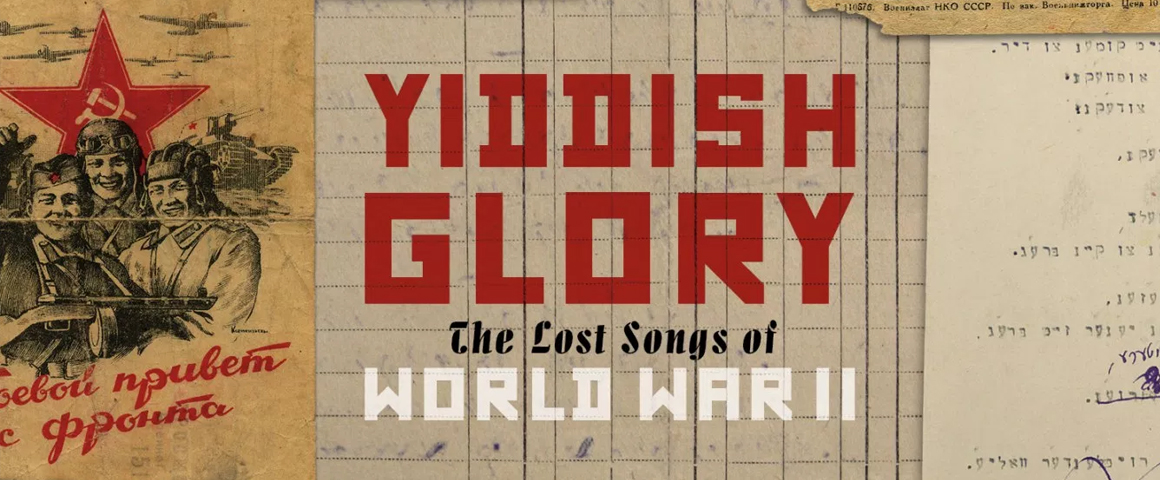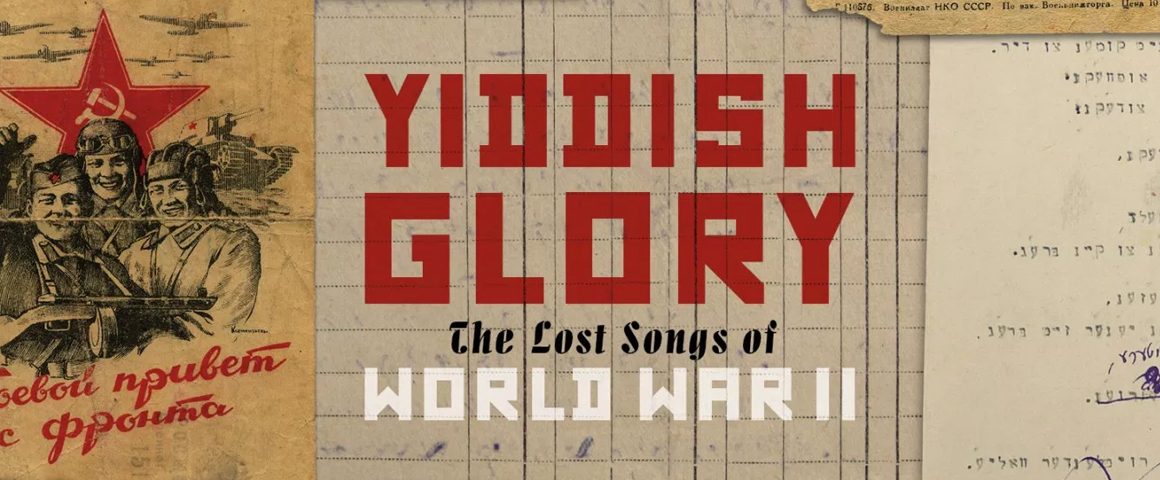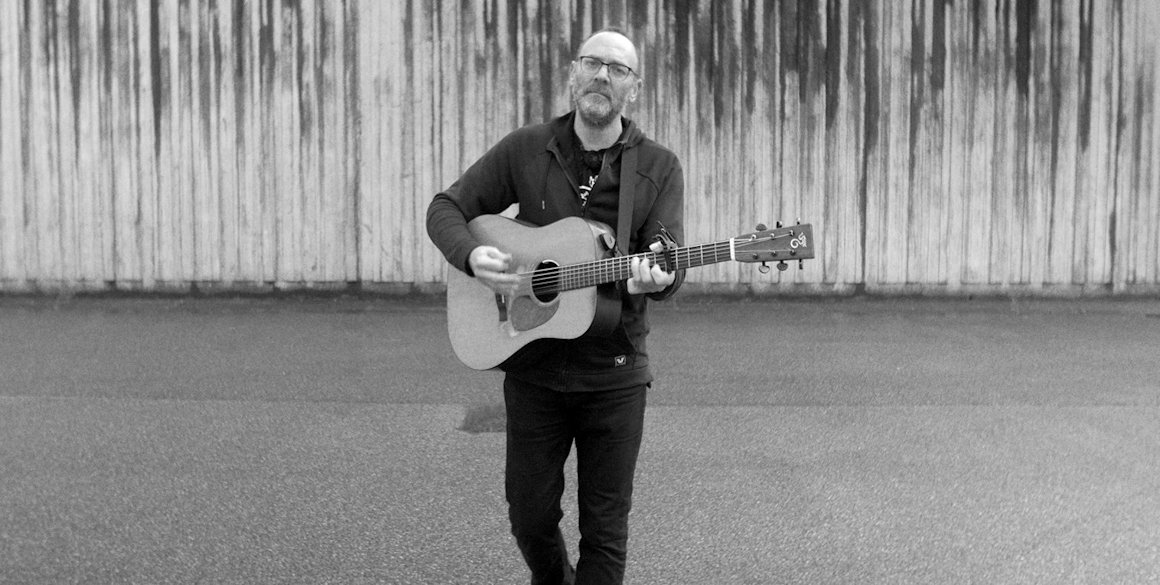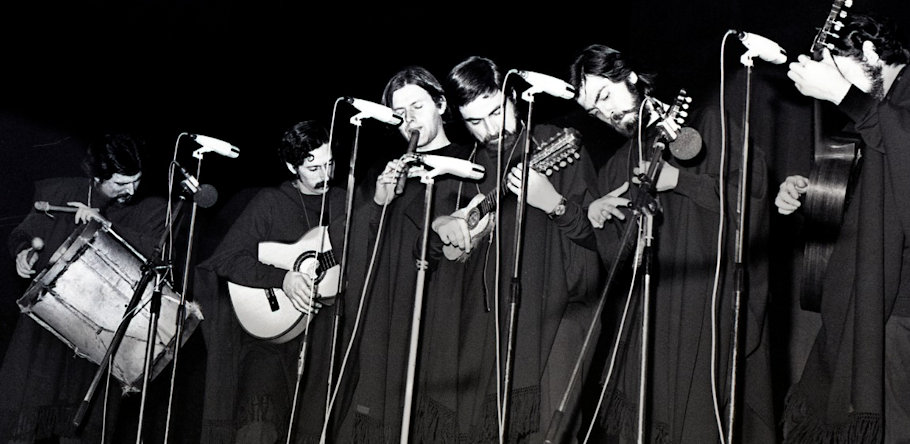Soviet Yiddish songs of WW2
The active, fighting role of Soviet Jews in World War II is celebrated in “Yiddish Glory: The Lost Songs of World War II”, a new recording of 17 songs composed by Jewish Red Army soldiers, refugees, survivors, and victims of the Nazi invasion of the USSR. “Yiddish Glory” is a collaboration between University of Toronto Yiddish Studies professor Anna Shternshis, Russian singer-songwriter Psoy Korolenko and Russian violinist and arranger Sergei Erdenko. Canadian members of the 12-piece international “Yiddish Glory” orchestra include jazz singer Sophie Milman, clarinetist Shalom Bard, trumpeter David Buchbinder, and accordionist Alexander Sevastian. The songs were discovered in the archives of the Vernadsky National Library of Ukraine in 1994. Professor Shternshis learned of the collection while in Kiev in the early 2000’s to research Yiddish culture. Soviet musicologist Moisei Bergovsky (1892-1961), an expert on Yiddish folk songs and klezmer music, was the compiler. Like many Soviet Jews in the last years of the Stalin era, he suffered political repression. His institute was closed, and he was exiled to Central Asia from 1951-55. Although he returned to Kiev in 1956, Bergovsky’s song collection remained in the library archives, seemingly forgotten. “Yiddish Glory” celebrates the bravery and resistance of Soviet Jews, as well as their hope, humour, and despair. “Yoshke From Odessa”, for example, depicts a Jewish soldier who “slices his enemies into pieces”. “Purim Gifts for Hitler” compares the Nazi dictator to others who tried and failed to destroy the Jewish people. “Babi Yar” refers to the heinous massacre of more than 30,000 Jews on September 29-30, 1941 by German troops and Ukrainian collaborators . While “Yiddish Glory” is not the only collection of Yiddish songs from the Soviet Union, it is the first to document Jewish participation in the Great Patriotic War, and for that reason it has historic, as well as artistic value. (www.sixdegreesrecords.com/yiddish-glory)

Giddens educates while she entertains
Rhiannon Giddens is a popular musician who challenges stereotypes. The 41-year-old singer, violinist, banjoist, composer, and musicologist from North Carolina has emerged in recent years as a compelling voice in American music. She first achieved recognition with the The Carolina Chocolate Drops, the Grammy-winning African-American string band she co-founded in 2005. Her arrival as a unique solo voice was signalled by her acclaimed 2015 album “Tomorrow Is My Turn”, which featured homages to the great folksinger Odetta (“Waterboy”) and country music star Patsy Cline (“She’s Got You”). Giddens’s second solo album, last year’s “Freedom Highway”, was named album of the year by Canadian roots music magazine Penguin Eggs, following a survey of music journalists, radio hosts, folk clubs, and festival producers. Its nine original songs reference the struggles of African Americans over two centuries: from the 19th-century narrative of a woman slave (“At the Purchaser’s Option”), to contemporary police shootings of young Black men (“Better Get It Right the First Time”). There are timely covers as well. Giddens’s renditions of Richard Farina’s “Birmingham Sunday” (about the 1963 KKK bombing of a Baptist church that killed four young girls), and the 1965 Staples Singers civil rights anthem “Freedom Highway”, sound urgent and contemporary. Rhiannon Giddens has wide-ranging influences: from southern string bands, work songs, blues, old-time jazz, and Celtic, to country, R&B, hip-hop, and even opera. If all of this seems eclectic, it’s not a fault. Giddens has the talent as a vocalist and instrumentalist to pull it off, as well as an appealing ability to educate while she entertains. (www.rhiannongiddens.com)

José Antonio Abreu: 1939-2018
José Antonio Abreu, the musician and economist who brought free classical music lessons to impoverished children and founded Venezuela’s renowned system of youth orchestras, died in Caracas on March 24. Venezuelan President Nicolas Maduro was among the mourners. In a social media post, accompanied by a photo of the two of them smiling together, Maduro wrote: “The Venezuelan people that you so loved are crying for you Maestro”. Abreu’s death was announced by the Simón Bolívar Musical Foundation, which operates the program he created: The Foundation for the National Network of Youth and Children’s Orchestras of Venezuela. It’s better known throughout the world as “El Sistema”, and has now spread to more than 60 countries. Its motto: “music for social change”. Back in 1975, Abreu conceived of the Orquesta Sinfónica Simón Bolívar as the apex of his national system of youth orchestras. Today it’s world famous. It opened the 2016 season at Carnegie Hall, under the baton of artistic director (and Abreu’s most famous protégé) Gustavo Dudamel. The conductor, who also directs the Los Angeles Philharmonic, called Abreu “an inspiration, an artist, a friend, and a teacher,” who taught him that “the right to beauty is inalienable.” José Antonio Abreu received many international honours, including Canada’s Glenn Gould Award (2008) for “a unique lifetime contribution that has enriched the human condition through the arts.”





